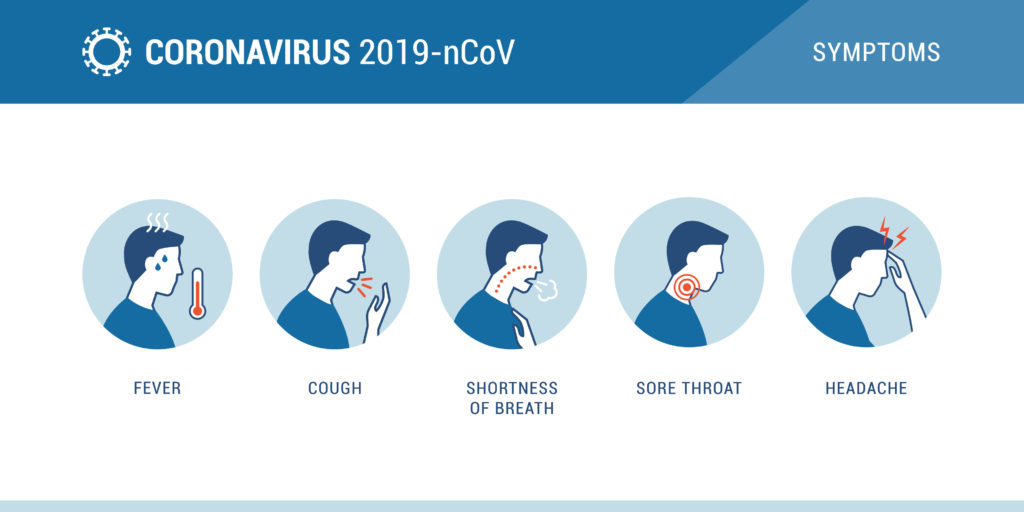Coronavirus and Seniors Over Age 60! What You Need To Know In 2025
The coronavirus is becoming a major concern for seniors over age 60, and new studies show that the virus may be more common in older adults than previously thought.
The virus can lead to “serious respiratory problems and even death,” so it’s important for seniors to know what risks they are facing from this disease. In order to stay safe, make sure you wash your hands often, avoid close contact with sick people (especially those who have a fever), cover your mouth when you cough or sneeze and don’t share food or utensils with others.
Be mindful of any unusual symptoms such as flu-like symptoms, shortness of breath, or chest pains. If you have these symptoms, go see your doctor right away!
Table of Contents
- Why Are People Dying From The Coronavirus, Why are Seniors At More Risk
- Coronavirus Deaths in the US For Seniors 60 and over
- The Symptoms of Coronavirus Disease [COVID-19]
- Why is the Coronavirus Dangerous For Seniors over age 60
- What is the Senior Death Rate of Coronavirus Over 65 in the US
- What if I get the Coronavirus over age 60
- What is the Survival Rate of Coronavirus for Seniors Over 65
- Where in the USA is the Coronavirus
- Conclusion
Why Are People Dying From The Coronavirus, Why are Seniors At More Risk
Do I need a life insurance policy? If you are over the age of 60 you are at more risk THEN MOST of us. In fact, if your a senior with chronic medical conditions and/or pre-existing medical conditions you at risk of getting very very sick.
Seniors with these chronic health conditions should be extra careful.
- Heart Disease
- Diabetes
- Lung Disease (COPD, Bronchitis, Asthma)
If you have a community outbreak of COVID-19 there is a chance it could last not just days or weeks, but MONTHS!! SO you older adults should be extra cautious. Above all, if you have an existing health condition that weakens your immune system take precautions.
The World Health Organization has stated that seniors over the age of 80 that got infected with COVID-19 have a fatality rate of 8 times that of younger infected consumers.
Become proactive NOW with this same day instant coverage!
Coronavirus Deaths in the US For Seniors 60 and over
Above all, it’s important to realize that the senior population is more prone to fatalities than the younger population.
Overall, the mortality rate is estimated to me at 2.3%, however much higher for seniors.
- ages 10-59: 2.3%
- ages 60+: 26.4%
So if you are having the following symptoms please seek medical attention. Keep in mind, this is an infectious disease.
The Symptoms of Coronavirus Disease [COVID-19]
Here are the most common symptoms and the percentage of the cases that had these symptoms that translated to COVID-19 infection.
What are the signs and symptoms of coronavirus:
- FEVER (87.9%)
- Dry Cough (67.7%)
- Fatigue (38.1%)
- Sputum Production (Thick Mucus) (33.4%)
- Shortness of Breath (18.6%)
- Muscle Pain/Joint Pain (14.8%)
- Sore Throat (13.9%)
- Headache (13.6%)
- Chills (11.4%)

Why is the Coronavirus Dangerous For Seniors over age 60
Above all, it comes down to a weakening of the immune system that comes with age. That is why YOU must be proactive. Put things in place to protect your family.
These are the underlying conditions that put senior over 60 at more risk along with the death rate:
- Cardiovascular disease (10.5%)
- Diabetes (7.3%)
- Chronic Respiratory Disease (6.3%)
- Hypertension (6.0%)
- Cancer (5.6%)
Overall, even if your an adult child and are concerned about the financial burden that could transpire due to this illness to a senior parent, there is something you can do.
What is the Senior Death Rate of Coronavirus Over 65 in the US
Overall, the COVID-19 mortality rate in the US is about 10 times more for seniors over 60 then the infected of ages 59 and under.
This is very important to take seriously, especially if you have some sought of the respiratory condition already. For example, as of 3/12/2020, COVID-19 has taken a heavy toll on seniors in the Seattle-area outbreak as at least 22 seniors in nursing homes have died directly from COVID-19.
This must be taken seriously!! In Wuhan, China and Milan, Italy, some death rates are as high as 5%.
Here is an analogy, would you get on a plane if you had a 1 in 20 chance of the plane going down. Of course not!! Take precautions, wash your hands, stay indoors, Weather the storm.
What if I get the Coronavirus over age 60
Above all, go to your doctor or ER as the progress of this disease happens quickly. The early you get treatment the better. DO NOT TAKE IT LIKELY!!
If you have symptoms such as difficulty breathing or shortness of breath, persistent pain of pressure in your chest, or confusion or bluish lips or face, GO TO THE ER!!
How to protect yourself from the Coronavirus?
Above all, take daily precautions. This will increase your protection. Be proactive and do the following.
- Clean your hands, especially after blowing your nose, coughing, or sneezing, or having been in a public place
- Use a hand sanitizer that contains at least 60% alcohol
- Avoid touching high-touch surfaces in public places
- Avoid touching your face, nose, eyes, etc
- Clean and disinfect your home, for example, tables, doorknobs, light switches, handles, desks, toilets, faucets, sinks & cell phones
- Avoid crowds
You are at high risk of exposure to respiratory illness like COVID-19 will increase in crowded and closed in settings.
Taking these precautions you are saving a life!! Again, you are saving lives protecting people from COVID-19.
Can Masks Protect Against Coronavirus COVID-19
Let’s go over this and make sure we know the facts. Is wearing a mask going to protect you from COVID-19? Fact, Fiction? Or Myth?
It’s a myth when it comes to 100% protection. So don’t be going out to a dance hall or restaurant and think you can put on your best Darth Vader and be safe!
The truth is, viruses can be transmitted through tiny viral particles that can penetrate a mask. The good news is, masks are good at catching droplets. Droplets are the main transmission route for COVID-19.
Some studies will suggest it can protect up to 5 times versus those that do not wear them.
What is the Survival Rate of Coronavirus for Seniors Over 65
if you are getting treatment and you did not ignore the symptoms, then you should be ok. Overall, about half the infected globally have recovered. However, it is based on numbers that are probably not factual.
COVID-19 has many pockets were we don’t really know the actual numbers.
CLICK HERE for the latest update on the global COVID-19 outbreak.
What is the treatment for coronavirus?
There is no treatment for COVID-19, in addition, to knowing preventative as of yet. Overall, patients need supportive care to help them breathe.
It’s hard to tell, but most recovery takes a few weeks. However, being quarantined over 14 days is where the standard is as of now. This could, however, change with some new data.
How long can coronavirus live on surfaces?
This is a great question in trying to find out how to look at COVID-19. The fact is, we really don’t know yet. For instance, new tests have been done and they may indicate that it remains viable in the following:
- In the air, (Up to 3 hours)
- On Copper, (Up to 4 hours)
- On Cardboard, (Up to 24 hours)
- On plastic and Stainless Steel, (Up to 2-3 days)
So this should make you consciously aware of your surroundings.
How To Prevent Getting Coronavirus
The best point of attack is disinfectants with 60-75% ethanol, up to 1% of hydrogen peroxide or bleach. Just clean, clean, clean!!
Where in the USA is the Coronavirus
Below is the map link to give you the updated MAP in real-time so you can keep your fingers in the pulse of this disease in real-time!!
If you are a senior or an adult child and are interested in knowing how to protect your loved ones from the financial burden that this disease can cause unexpectedly fill out the form to the right and an expert will reach out to you.
Related Articles
Conclusion
I hope this blog has been helpful in providing you with some insights into the world of coronavirus and seniors aged 60 or older. If you have more questions, please feel free to contact us for a quote!


